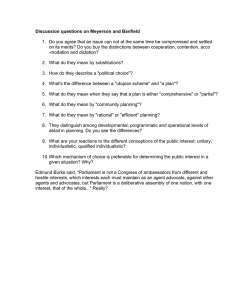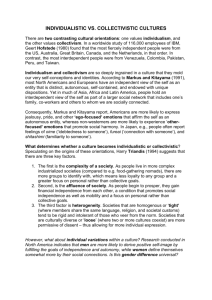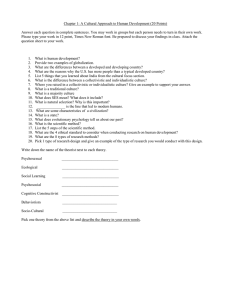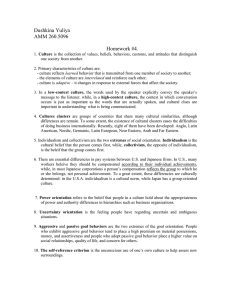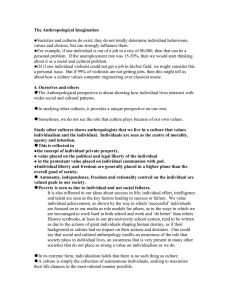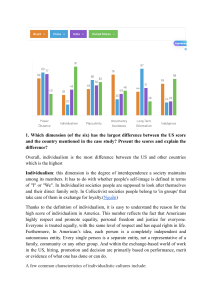Individualism: Concept, Characteristics, and Impact
advertisement
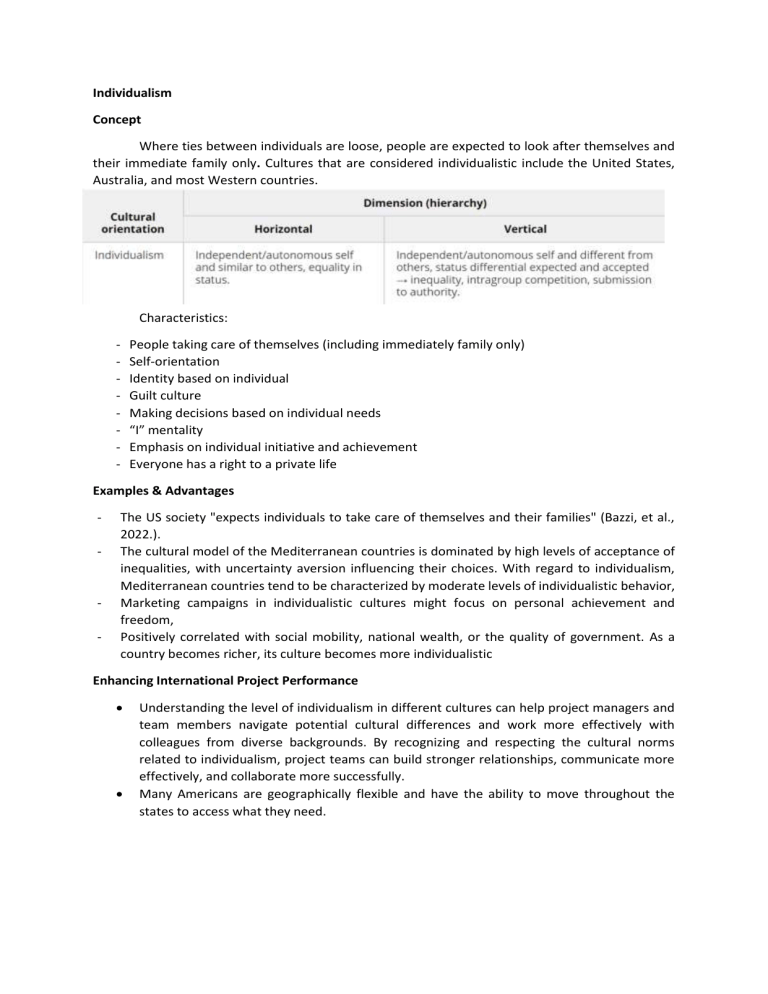
Individualism Concept Where ties between individuals are loose, people are expected to look after themselves and their immediate family only. Cultures that are considered individualistic include the United States, Australia, and most Western countries. Characteristics: - People taking care of themselves (including immediately family only) Self-orientation Identity based on individual Guilt culture Making decisions based on individual needs “I” mentality Emphasis on individual initiative and achievement Everyone has a right to a private life Examples & Advantages - - The US society "expects individuals to take care of themselves and their families" (Bazzi, et al., 2022.). The cultural model of the Mediterranean countries is dominated by high levels of acceptance of inequalities, with uncertainty aversion influencing their choices. With regard to individualism, Mediterranean countries tend to be characterized by moderate levels of individualistic behavior, Marketing campaigns in individualistic cultures might focus on personal achievement and freedom, Positively correlated with social mobility, national wealth, or the quality of government. As a country becomes richer, its culture becomes more individualistic Enhancing International Project Performance Understanding the level of individualism in different cultures can help project managers and team members navigate potential cultural differences and work more effectively with colleagues from diverse backgrounds. By recognizing and respecting the cultural norms related to individualism, project teams can build stronger relationships, communicate more effectively, and collaborate more successfully. Many Americans are geographically flexible and have the ability to move throughout the states to access what they need.


